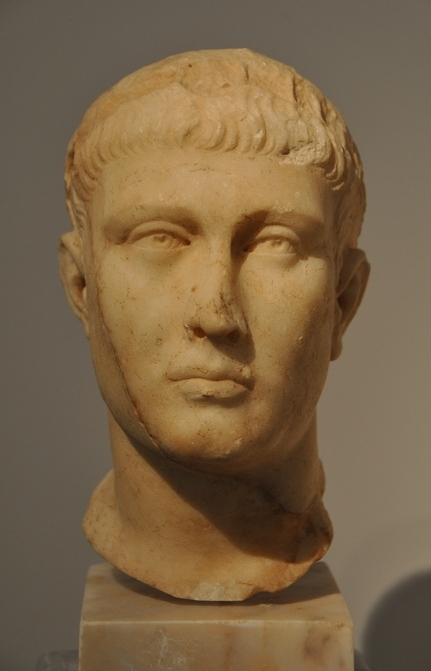Theodosius I Facts For Kids
Theodosius I, also known as Theodosius the Great, was a Roman emperor who ruled from 379 to 395 AD and is recognized for making Christianity the official religion of the Roman Empire.
Set reading age
View for Kids
Easy to read and understand
View for Students
Clear, detailed explanations
View for Scholars
Deep dives and big ideas
Introduction
Theodosius I, also known as Theodosius the Great, was a Roman emperor who ruled from 379 to 395 AD. 🌍He was the last emperor to rule both the Eastern and Western parts of the Roman Empire! He was born on January 11, 347, in a place called Cauca, which is in modern-day Spain. Theodosius was a significant figure because he made Christianity the official religion of the Roman Empire! ⛪He is remembered for his strong leadership and efforts to unite the empire under one faith.
Gallery of Theodosius I Facts For Kids
Rise To Power
Theodosius became emperor in a dramatic way! 🌟After the death of the emperor Valens in 378 AD, Theodosius was chosen to lead the Eastern Roman Empire. He quickly proved, by battling enemies and defending cities, that he was a capable ruler. By 394 AD, he had also become the emperor of the Western Roman Empire, uniting both parts of the empire for the first time in years. 📜His leadership skills and military tactics were key to his rise.
Legacy In History
Theodosius I is remembered as a key figure in history! 📜He is often called "the Great" because of his contributions to Christianity and the Roman Empire. His decision to make Christianity the official religion changed the course of history forever. Many historians look at his reign to understand how the Roman Empire transformed from a pagan society to a Christian one. 🙏His actions had lasting effects that shaped Western civilization.
Death And Succession
Theodosius I passed away on January 17, 395 AD, in Milan, Italy. 🏛️ His death marked the end of his reign, but his legacy continued. Before he died, he made sure that his two sons, Arcadius and Honorius, would become emperors. 👶By dividing the empire, he aimed to keep peace and stability. Sadly, this division would eventually lead to more challenges for the empire.
Cultural And Social Impact
Theodosius's reign led to significant cultural changes in the Roman Empire. 📚With Christianity becoming the main religion, many people focused on building churches, creating art, and writing about their faith. He also encouraged festivals and public celebrations of Christian holidays. 🎉This influenced how Roman society organized itself, leading to a mix of traditions that combined Roman and Christian cultures.
Relationship With Other Rulers
Theodosius interacted with many other rulers during his reign. 👑He had a friendly relationship with the Emperor Gratian in the West and worked together to help secure the empire. However, he also faced challenges, like dealing with powerful enemies. One significant ruler he negotiated with was Theodoric the Great, a leader of the Goths. Theodosius made efforts to keep peace with neighboring kingdoms to maintain stability in the empire. 🤝
Early Life And Family Background
Theodosius came from a military family. His father, Valentinianus, was a general. ⚔️ When he was a boy, Theodosius was raised in a town called Italica in Spain. His family was important in keeping the empire safe from invaders. His mother, a devout Christian, taught him about faith and values. ❤️ Growing up, Theodosius learned about leadership and bravery, which would help him later when he became emperor.
Influence On The Byzantine Empire
Theodosius I's leadership left a big mark on the Byzantine Empire. 🕊️ After his death, the Eastern Roman Empire continued to follow his Christian policies. Later, rulers of the Byzantine Empire would look to him as an example of a strong Christian leader. His support for Christianity laid the groundwork for the Byzantine culture and religious practices in the centuries that followed. 🌅
Historical Sources And Interpretations
Historians use many sources to understand Theodosius I's life. 📖Ancient texts like those written by historians such as Zosimus and Socrates of Constantinople provide insight into his reign and policies. These writings help people learn about his military campaigns, religious decisions, and how he shaped Roman society. 🗺️ Different historians might have various opinions about his actions, making it an exciting topic to explore!
Military Campaigns And Territorial Expansion
During his reign, Theodosius fought many battles to protect his empire. ⚔️ He faced enemies like the Goths and the Huns. One important battle was the Battle of Adrianople in 378 AD, where his army faced a big challenge. Despite this, he won several battles and expanded the Roman territory. 🌍Theodosius was known for his military skills and bravery, making him an important leader in protecting the empire's lands.
Religious Policies And The Edict Of Thessalonica
Theodosius loved Christianity! ❤️ In 380 AD, he issued the Edict of Thessalonica, which declared Nicene Christianity as the official religion of the Roman Empire. This means that all Roman citizens were encouraged to follow this version of Christianity. He took strong actions against other religions, like paganism and Arianism, which were not part of the official faith. 🚫This was a big change for the empire and helped shape its future.
Theodosius I Facts For Kids Quiz


Make things. Learn new skills. Share safely.
DIY is a creative community where kids draw, build, explore ideas, and share.
No credit card required

